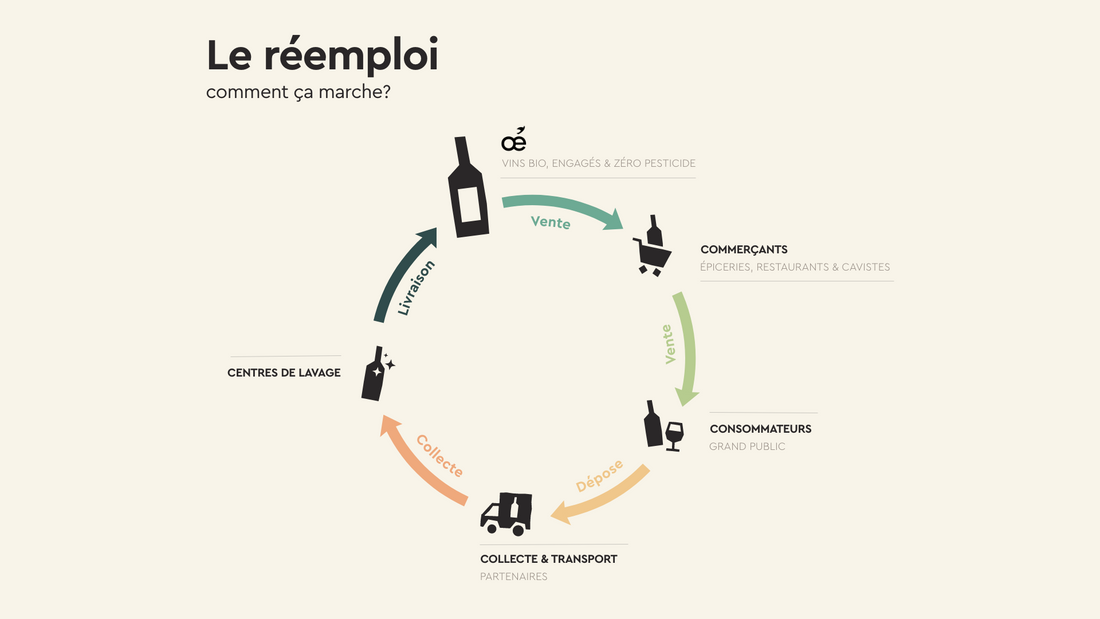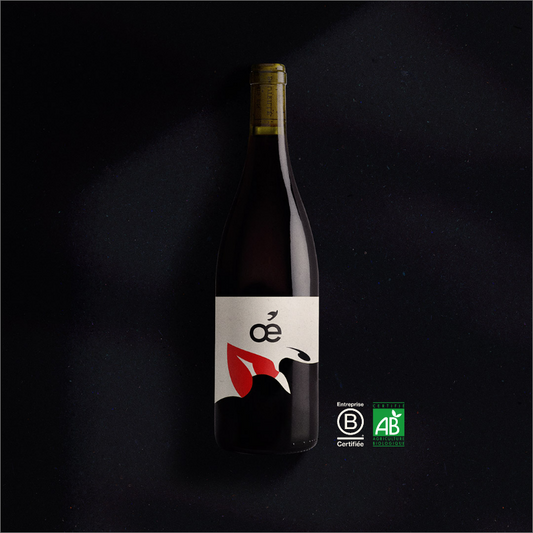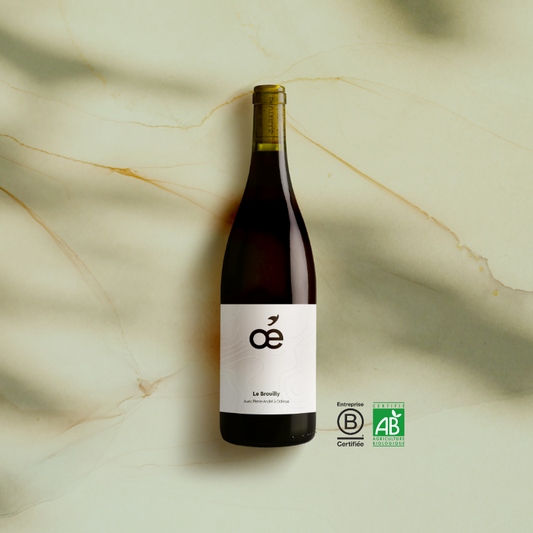Produce, buy, use, throw away. It’s how we’ve been taught to consume. Throwing something away is simply part of the consumption process today. While the industrial and technological revolutions have made life easier, they’ve also made a new behavior the norm: hyper consumption.
At Oé, we racked our brains thinking about how we could tackle this linear model of consumption.
We asked ourselves many different questions, but this one stuck: “how do you stop throwing something away and use it again instead?”.
During our research, we came across a great podcast on the world of tomorrow, hosted by Julien Vidal, the founder of the “it starts with me” movement. It featured the story of Jules Coignard, co-founder of Circulaire, the first global network of circular economy start-ups.
So, ready to dive into everything there is to know about the circular economy?
Where do we start?
Let's kick off with the waste problem. We know that we produce more and more waste: 91% of the world's production works on that linear model. That’s to say that 91% of what we extract and what we produce will have an end of life incinerated, buried or polluting natural environments.
We draw on resources as if they were limitless, creating a double problem: resources that are becoming increasingly scarce and waste management that becomes increasingly complicated.
For us, it’s a questionable economic model. Resources are extracted so that they’re eventually discarded. What’s the economic goal?
Two statements really bring home the problem: “waste is a resource in the wrong place” and “waste is a design error”. When we reread these sentences, we realize that we have the tools to rethink our approach to production and ensure that waste is eliminated.
Grab some pens, it’s time to rewrite the future together.
The circular economy: it works
Many of us have already heard of the circular economy.
If you haven't, the core tenets of the circular economy are producing in a sustainable way and limiting what we consume, the wastage of resources and the production of waste. In the circular economy there are different positive value loops, with the longest around waste recycling.
So the question is: “how can we better recycle our waste?” If we ask ourselves this question, it means that we’re already producing waste.
Shorter loops can be achieved through reuse, repair and rent. They require a fundamental change in business model if we’re going to change habits and ways of thinking.
The loops have different names so that they can be treated separately. Biological loops see organic waste returned to the earth without damaging our beautiful ecosystem. Technical loops concern materials that have been transformed and cannot return as they are to the earth.
For the latter, we can shorten the loop by reusing and repairing our products. The ultimate goal of circularity is to create “short cuts”. These maintain the value of the product and create more jobs. A better environmental, economic and social impact: what more could you ask for?
At Oé, we strive to contribute to the circular economy and have put in place the return (and reuse) of our bottles. Instead of throwing away a glass bottle to be recycled*, we wash and refill.
*Recyclable does not mean recycled. In France in 2020, only 85% of glass was recycled and the rest was... buried. New bottles do not only consist of recycled materials. Transparent bottles are made of 70% new raw material and green bottles 25%.
Enough jobs to make your head spin
We can already hear some people saying: “but if we stop producing new things, we're going to lose a lot of jobs”. Guess what: we won’t. We don’t lose jobs by moving to a circular model. In fact, the opposite is true.
Here’s some data from a study by the Ministry of Ecological Transition in France.
In the short term, 300,000 net jobs will be created in France if we switch to a circular economy.
For example, burying 10,000 tonnes of waste creates 1 job, incinerating it creates 3 and recycling it creates 31 jobs. But if we reuse it, we create… 550 jobs!
It takes people-power to wash, recondition, repair and reuse…. And when people work for the circular economy, they’re motivated, more positive, more connected to our world and to living things.
Professions in the circular economy call on everyone's creativity and personality. Everyone can be an innovator, reinventing the way things are done.
A new model brings new needs. We have to readjust and create new career paths. We've already seen how our new process led to new roles. And whatever your skills and your profession, you also can put circularity in your business.






